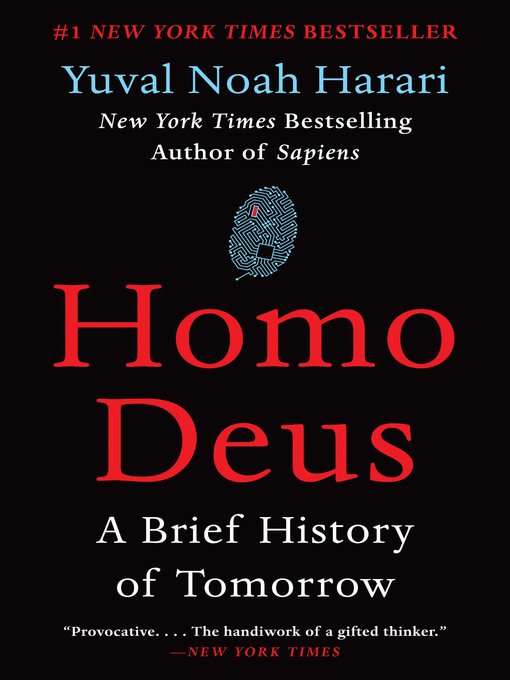
Homo Deus
A Brief History of Tomorrow
کتاب های مرتبط
- اطلاعات
- نقد و بررسی
- دیدگاه کاربران
نقد و بررسی

January 9, 2017
Harari (Sapiens), professor of history at the Hebrew University of Jerusalem, provocatively explores what the future may have in store for humans in this deeply troubling book. He makes it clear that it is impossible to predict the future, so claims to be offering “possibilities rather than prophecies”—and builds a strong case for a very specific outcome. The future to which he affords the greatest probability is, in many ways, a dystopian world in which humanism has given way to “dataism”—the belief that value is measured by its contribution to information transfer—and humans play an insignificant role in world affairs or have gone extinct. The roles humans play are diminishing, Harari argues, because increasingly our creations are able to demonstrate intelligence beyond human levels and without consciousness. Whether one accepts Harari’s vision, it’s a bumpy journey to that conclusion. He rousingly defends the argument that humans have made the world safer from disease and famine—though his position that warfare has decreased remains controversial and debatable. The next steps on the road to dataism, he predicts, are through three major projects: “immortality, happiness, and divinity.” Harari paints with a very broad brush throughout, but he raises stimulating questions about both the past and the future.

Starred review from December 1, 2016
In an intellectually provocative follow-up to Sapiens (2015), Harari (History/Hebrew Univ. of Jerusalem) looks to the future.Throughout history, humans prayed for deliverance from famine, disease, and war with spotty success. For centuries, prophets agreed that all of the suffering was "an integral part of God's cosmic plan." Today, obesity kills more humans than starvation, old age more than disease, and suicide more than murder. Having reduced three horsemen of the apocalypse to technical problems, what will humans do next? Harari's answer: we will become gods--not perfect but like Greek or Hindu gods: immortal and possessing superpowers but with some foibles. Although an atheist, the author does not demean religion. "Up until modern times," he writes, "most cultures believed that humans play a part in some cosmic plan...devised by the omnipotent gods, or by the eternal laws of nature, and humankind could not change it. The cosmic plan gave meaning to human life, but also restricted human power." Even without this agency, this belief gave our lives meaning: disasters happened for a reason, and everything would work out for the best. Deeply satisfying, this remains a core belief of most humans, including nonchurchgoers. Since the Enlightenment, the explosion of knowledge has produced dazzling progress but limited the influence of God. Many thinkers--if not the general public--agree that there is no cosmic plan but also that humans are no longer humble victims of fate. This is humanism, which grants us immense power, the benefits of which are obvious but come at a painful price. Modern culture is the most creative in history, but, faced with "a universe devoid of meaning," it's "plagued with more existential angst than any previous culture." As in Sapiens, smoothly tackles thorny issues and leads us through "our current predicament and our possible futures." A relentlessly fascinating book that is sure to become--and deserves to be--a bestseller.
COPYRIGHT(2016) Kirkus Reviews, ALL RIGHTS RESERVED.

September 15, 2016
Having assessed humanity's past in the internationally best-selling Sapiens: A Brief History of Humankind, Hebrew University professor Harari looks to the future. He argues that with the age-old scourges of famine, plague, and war now under control, we're on to the next stage: Homo Deus. With a 200,000-copy first printing.
Copyright 2016 Library Journal, LLC Used with permission.

























دیدگاه کاربران